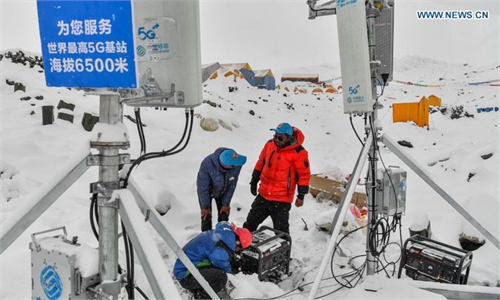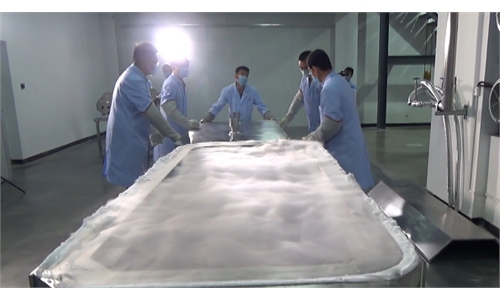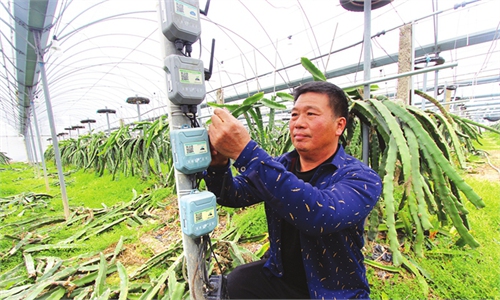Sci-tech advances hitting 13th Five-Year Plan target with 60% contribution to China’s growth in 2020

Robots dancing at the first China-ASEAN Artificial Intelligence Summit held in Nanning, capital of South China's Guangxi Zhuang Autonomous Region on Saturday. More than 100 firms displayed cutting-edge intelligent technology and appliances for people's daily lives in the 5G era, and attendees could have a try. Photo: VCG
The contribution of science and technology to China's economic growth was estimated to top 60 percent in 2020, Minister of Science and Technology Wang Zhigang said on Friday, achieving the 60 percent target laid out for the 13th Five-Year Plan (2016-20).
The country's spending on research and development is expected to hit 2.4 trillion yuan ($371 billion) in 2020, up from 1.42 trillion yuan in 2015, Wang told a press conference.
The contribution of sci-tech to economic growth stood at 59.5 percent in 2019 on the back of 2.2 trillion yuan in R&D commitments, official data showed.
Funding for basic research is estimated to surpass 150 billion yuan last year, nearly doubling the level in 2015, the minister said, and basis research funding as a percentage of total R&D expenditures surpassed 6 percent for the first time with the construction of 13 applied mathematics centers.
Over the 14th Five-Year Plan (2021-25), the country will further take measures to up the ante in basic research spending, with both the central government continuing to ramp up investment, and companies and social forces being guided to increase commitments to basic research, said Ye Yujiang, head of the Department of Basic Research at the Ministry of Science and Technology.
Policies and measures will be formulated to stimulate social capital into basic research, Ye told the same press conference, without elaborating.
In a research report sent to the Global Times, DBS chief China economist Chris Leung wrote that China's R&D mainly focuses on applied research such as high-speed rail, and its basic research, only 6 percent of its overall R&D spending, remains much lower than an average 15 percent in developed economies.
The country was ranked 14th in the Global Innovation Index of the World Intellectual Property Organization in 2020, leapfrogging from 29th in 2015.
Wang cited the global networking of China's homegrown BeiDou Navigation Satellite System, the ramped-up applications of new-energy vehicles and artificial intelligence, saying the country has over 200,000 high-tech firms.
As part of efforts to boost its technology talent pool, the country has adopted a unified work permit and visa system for foreign talent, having handled nearly 650,000 work permits, according to the ministry.
The country has also sought to integrate itself into the global innovation network, instituting an innovation dialogue mechanism with many countries and launching joint research with over 50 countries and regions. Plans for sci-tech innovation partnership under the Belt and Road Initiative have offered support for more than 8,300 young foreign scientists to work in China and build 33 joint laboratories, the minister said.



